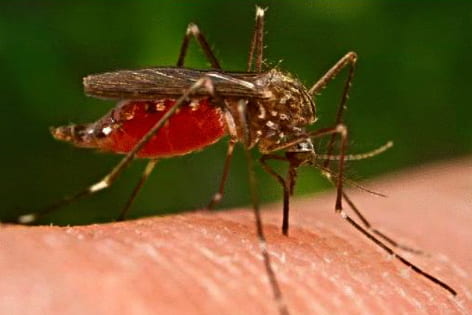Squashing mosquito-borne disease
With a $10,000 award from the UCI Graduate Division, Thomas Gilbreath will study how land-use in Africa affects the mosquito population and spread of malaria. The fellowship supports students whose research could have significant public impact.

The rural Cambodian hospital overflowed with people sickened by dengue fever. The suffering – brought on by a lack of resources to fight mosquito-borne illnesses – surrounded Thomas Gilbreath.
“You hear about these things, but when you see it, it’s overwhelming,” says Gilbreath, a UC Irvine ecology & evolutionary biology doctoral student who traveled to Southeast Asia as an undergraduate researcher. “There are ways we can reduce death from diseases spread by mosquitoes.”
With a $10,000 award from the UCI Graduate Division, Gilbreath will study how land-use in Africa affects the mosquito population and spread of malaria. The fellowship supports students whose research could have significant public impact.
“Malaria is the major public health problem in Africa, and it has a major negative effect on human health and economic development,” wrote Guiyun Yan, a UCI public health professor, in a nomination letter for Gilbreath. “His work will increase our knowledge on environmental regulation of mosquito populations and malaria transmission.”
In 2006, nearly 1 million people died of malaria; 91 percent were in Africa, and 85 percent were younger than 5. Recent studies suggest that land-use changes such as deforestation, farming and urbanization may increase the mosquito population, but how this occurs is largely unknown.
Gilbreath will take water samples from forested and deforested areas in western Kenya and analyze their microbial contents. He will look for those same microbes in larval mosquitoes to determine their food source. His theory is that deforestation allows more sunlight to reach the ground, warming standing water and creating a richer microbial environment for the larvae.
“You can’t control a pest until you understand its ecology,” says Gilbreath, who grew up in Wisconsin – a hotbed for mosquitoes.
Once he receives his doctorate, Gilbreath plans to work at a research institution on better understanding mosquito biology and developing projects to raise community awareness – teaching people how to use protective nets and spot and destroy mosquito habitats more effectively.
Says Gilbreath: “I really feel I am in this field to make a difference.”